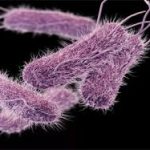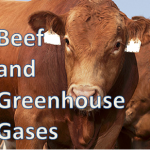fasdf@sadf.tu
How Safe Food Trucks Are?
E. coli outbreak closed Chicken & Rice Guys in Boston According to the Boston Globe the city of Boston received an anonymous complaint about customers getting sick after buying food from Chicken & Rice Guys trucks. The Boston Health department confirmed 7 cases of E. coli food poisoning originating from the Allston location that supplies the food for the chain. The company has 5 trucks that rotate in the Boston area. They also have regular, brick and mortar, restaurants in Allison, Boston, and Medford. The Chicken & Rice Guys began the food truck business in 2012. Fifteen of the chain customers were...
fasdf@sadf.tu
Infection by a Rare Type of E. coli Across Canada
The Announcement The Public Health Agency of Canada (PHAC) reported that there have been 12 cases of a rare strain of E. coli O121. The illness onset dates range from November to December 2016, and include 9 males and 4 females, age of 9-79 years old. The recovered E. coli with a matching genetic fingerprint reported in three provinces: British Columbia (4), Saskatchewan (4), and Newfoundland and Labrador (4). Four individuals have been hospitalized. These individuals have recovered or are recovering. The investigation into the source of the outbreak of the relatively rare E. coli O121 contamination is ongoing. PHAC said that two of the most common ways...
fasdf@sadf.tu
USDA Study Shows That Beef’s Resource Use Do not Significantly Impact Greenhouse Gas Emissions
A comprehensive study by ARS (Agricultural Research Services) on the environmental footprint of beef life cycle in the US was completed.The study concluded that cattle convert feed to food as efficiently, as pork and poultry, is not a large contributor to global warming. The goal of the study was to establish baseline measures that the U.S. beef industry can use to explore ways of reducing its environmental footprint and improve sustainability. “We found that the greenhouse gas emissions in our analysis were not all that different from what other credible studies had shown and were not a significant contributor to long-term global...
fasdf@sadf.tu
FDA issues draft guidelines to protect food products from deliberate attacks
Intentional adulteration (IA) can take several forms: acts intended to cause wide-scale public health harm (such as terrorism) focused on the food supply; acts of disgruntled employees, consumers, or competitors; and economically motivated adulteration (EMA). The first type of act is the center of the regulation because it is intended to cause wide-scale public health harm with intent to cause significant human morbidity and mortality. The U.S. Food and Drug Administration released today a revised draft guidance, “Mitigation Strategies to Protect Food Against Intentional Adulteration: Guidance for Industry,” to support compliance with the intentional adulteration (IA) rule set forth under the...




